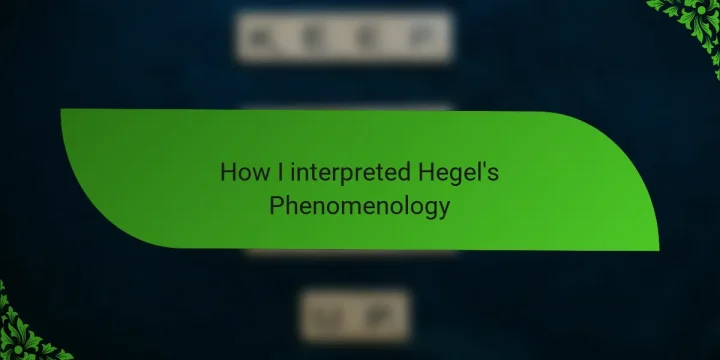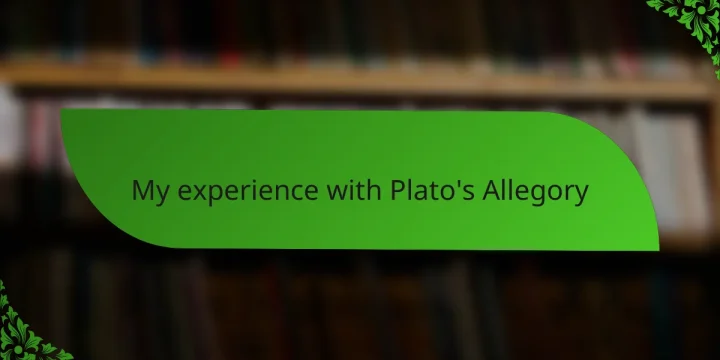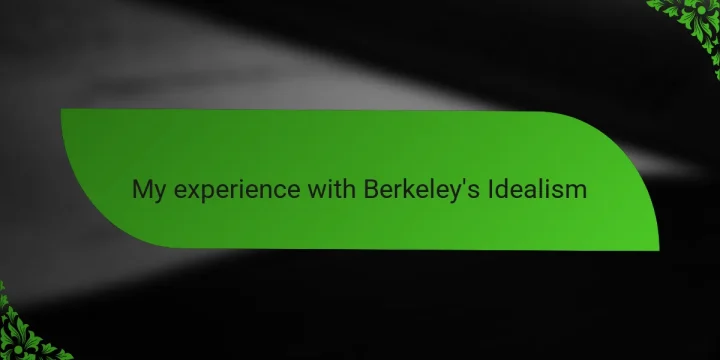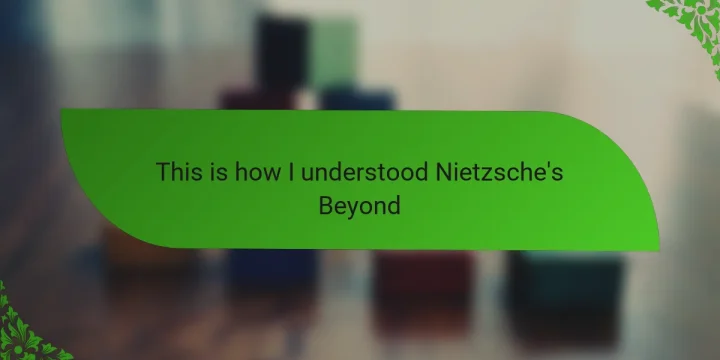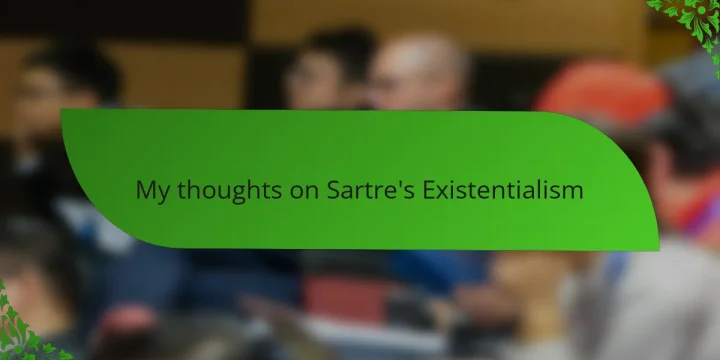
Key takeaways Existentialism emphasizes personal freedom and responsibility, challenging individuals to define their essence through choices in an uncertain world. Sartre's concepts, such as "bad faith" and "radical freedom," encourage self-reflection and authenticity, prompting individuals to confront personal anxieties and the discomfort of true self-discovery. Integrating existentialism into modern philosophy education fosters critical thinking, urging students to engage with their own experiences and uncertainties rather than accepting established truths passively. Living by Sartre's philosophy involves treating everyday choices as expressions of freedom, enabling individuals to transform routine actions into meaningful declarations of their identity. Understanding Existentialism in Philosophy Existentialism, at its core, challenges us to confront the reality of our own freedom and responsibility. I remember the moment I first grappled with this idea—realizing that life doesn’t come with a…


